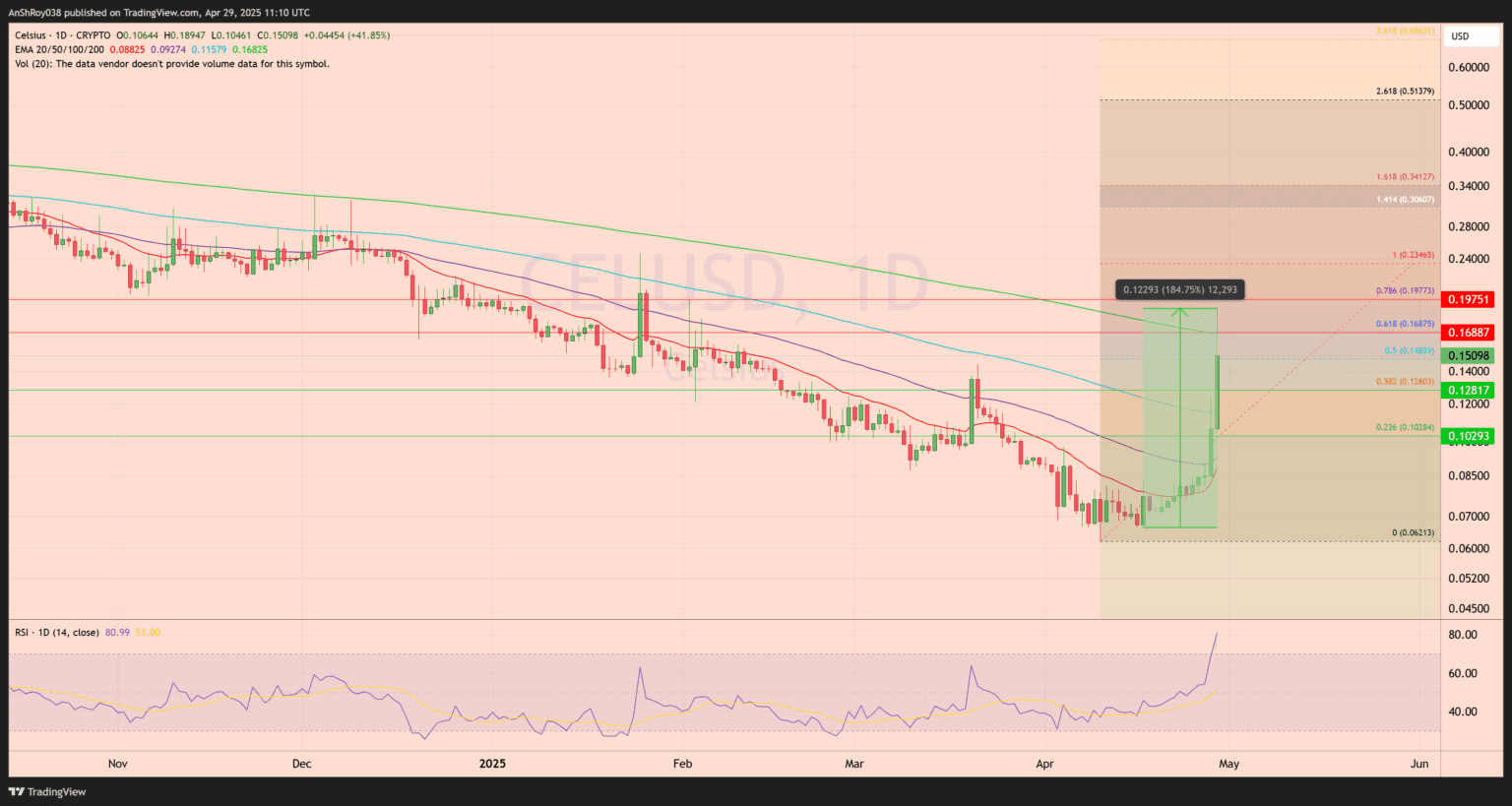Key Insights:
- Federal prosecutors are pushing for a 20-year sentence for former Celsius CEO Alex Mashinsky.
- Mashinsky admitted in December 2024 that he led fraudulent activities, causing over $550 Million in losses.
- The Department of Justice emphasized that Mashinsky’s fraud was deliberate and intended to deceive customers.
Federal prosecutors seek a 20-year sentence for Alex Mashinsky, former CEO of the collapsed crypto lender Celsius.
Mashinsky’s sentencing comes after he admitted to leading a calculated scheme that caused massive financial damage.
The U.S. Department of Justice emphasizes the need for a strict penalty to deter future misconduct within the cryptocurrency sector.
DOJ Seeks 20-Year Prison Term for Alex Mashinsky
The Department of Justice submitted a sentencing memorandum urging the court to impose a two-decade prison term on Mashinsky.
Officials argued that Mashinsky’s leadership directly resulted in the loss of nearly $4.7 Billion in digital assets.
The officials point to deliberate misconduct, not market volatility or mistakes, as the cause of the fraud.

Mashinsky pleaded guilty in December 2024, admitting he orchestrated fraudulent activities while enriching himself with at least $48 Million.
According to prosecutors, Celsius had allegedly become unsafe through frequent publicity of being a safer financial option compared to traditional banks.
The internal records from Celsius revealed that the company took on dangerous loan terms and participated in both market manipulation and speculative trading activities.
Court documents revealed Mashinsky sold tens of millions worth of CEL tokens while falsely assuring users he was holding them.
The investigation exposed that Mishinsky planned his fraudulent actions with explicit self-motivated goals instead of defective business practices.
The DOJ claimed that a heavy punishment was needed to send a message about the extent of his crimes.
The Justice Department emphasized the destruction caused to thousands of unsuspecting individuals who had placed their cryptocurrency assets into Celsius’ custody.
A total of 200 victim impact statements provided evidence about the victims who suffered financial breakdowns while experiencing mental health problems and family separation.
Many called for the maximum sentence, comparing Mashinsky’s fraud to infamous historical financial crimes.
Probation officers recommended a 15-year sentence while Mashinsky’s defense team requested just over one year.
The DOJ insisted that Mashinsky’s actions warranted a stronger response to prevent similar cases.
Co-Founder Shlomi Daniel Leon and Others Also Face Legal Scrutiny
While Mashinsky faces a harsh sentence, other former Celsius executives are under legal scrutiny for their roles in the collapse.
Shlomi Daniel Leon, who co-founded Celsius with Mashinsky in 2017, was charged by the Federal Trade Commission.
Leon left his position as Celsius’ chief strategy officer in October 2022 shortly before the platform delayed all customer withdrawals.
In July 2023, the FTC issued a $4.7 Billion fine against Celsius, naming Leon and co-founder Hanoch Goldstein alongside Mashinsky.
The legal charges against Celsius stemmed from misleading customers about product use while their funds remained unrecognized property.
Leon’s involvement strengthened the investigation into widespread fraudulent practices at Celsius within its executive level.
The FTC demonstrated that Celsius exploited user funds by using them to gamble in speculative transactions while hiding its conduct.
Executive members at Celsius benefited from personal profits at the expense of the company’s financial condition, which worsened.
Although Mashinsky remains the primary defendant, authorities are working to ensure other responsible parties face legal consequences.
According to prosecutors, Leon and Goldstein led Celsius operations through choices that harmed customers.
CEL Token Price Surges Despite Celsius’ Collapse and Legal Challenges
Meanwhile, the CEL token experienced a surprising rally even as its parent project crumbled and its leadership faced prison.
On April 29, CEL surged as high as $0.189, marking a 184% rise from its April 17 low near $0.06. The sudden surge carried the token above multiple defined resistance markers through sustained market force.
CEL cleared the 0.236 Fibonacci retracement at $0.102 and broke through additional resistance at $0.128 and $0.143 zones.
The token encounters initial resistance at $0.168 because this price point equals the 0.618 Fib retracement and the 200-day EMA levels. A successful break above could drive CEL towards $0.197, aligned with the 0.786 Fib level.

The Relative Strength Index (RSI) indicator reached 81 levels, showing that prices were highly overbought.
On the downside, CEL found initial support near $0.143, followed by secondary cushions at $0.128 and $0.102.
Despite the rally, analysts warn that the surge remains disconnected from Celsius’ ongoing legal and financial troubles.
